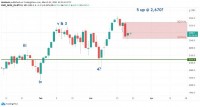|
Opalesque Industry Update - A sizable share of private equity investors believe the asset class has become more liquid, but few believe the advances are sufficient to meet current needs, according to the survey, Solving the Private Equity Liquidity Challenge: a Work in Progress,” released today by SEI. SEI’s Investment Manager Services division is a global supplier of customised operating infrastructure and services to investment organisations representing more than $13 trillion in assets under management. Amongst the 212 individuals surveyed: § Nearly half (47 percent) of general partners (GPs), 36 percent of limited partners (LPs), and 33 percent of consultants agreed that the private equity market is “more liquid than it used to be and will continue to become more so.” § Still, only 22 percent of GPs, 19 percent of LPs, and 17 percent of consultants said the industry’s liquidity needs are currently being met. Approximately one-fourth of the global survey respondents were European. “Traditionally, a lack of liquidity has been assumed by private equity investors, but those expectations are evolving,” said Philip Masterson, Senior Vice President of SEI’s Investment Manager Services division, and head of its international business. “Escalating institutional demands and broadening market participation are driving the rapid evolution of private equity trading venues.” Secondary market growth has been key According to the survey, the growing secondary market for private equity investments has played a major role in the easing of liquidity constraints. Once associated with the sale of troubled assets at deep discounts, the secondary market has become mainstream, with 2014 global transaction volume expected to surpass $30 billion, according to Private Equity International. Fifty-eight percent of LPs and investors in the survey said they have bought or sold assets on the secondary market, and a majority of all respondents said participating in the secondary market is “no longer taboo” for investment professionals. Rising valuations have been a key factor in the growth of the secondary market, the report states. A majority of all respondents said the market is fairly valued, however, more than half of the LPs surveyed saw the market as overvalued. Only 1 in 10 respondents said the market is currently undervalued. Most respondents expressed concern with the valuation process, with only 8 percent agreeing that it is “generally fair and accurate.” Survey results show, 4 in 5 respondents described the quality of valuations as “variable.” New vehicles and platforms arising Other key factors in the improving liquidity picture addressed in the survey include: § The growth of publicly traded entities with underlying private equity investments. Though most respondents saw this trend as continuing, they expressed concern that the exposure provided by such listed entities may differ from that of traditional private equity investments. Eighty-two percent agreed that publicly traded private equity firms “are not a good proxy” for the asset class. § The development of private equity mutual funds and Exchange Traded Funds for retail investors. Whilst a majority of respondents said they expect these to remain “niche products,” 32 percent predicted they will gain importance in the private equity landscape. “The rapid evolution of private equity vehicles and trading venues only adds to the complexity of the operating environment for asset managers,” said Masterson. “Increasing liquidity is good news for private equity managers, but they will need to adapt their operating infrastructure to changing market structures. Meanwhile, they are also dealing with escalating compliance, transparency, and reporting demands. Having a robust and flexible operating platform will be critical for managers who want to stay focused on their core mission of fulfilling investor return expectations.” Download the complete report at: www.seic.com/PELiquidityChallenge Press release Bg |
Industry Updates
Private equity liquidity constraints are easing, but investors’ needs are still unmet
Thursday, February 12, 2015
|
|





 RSS
RSS







